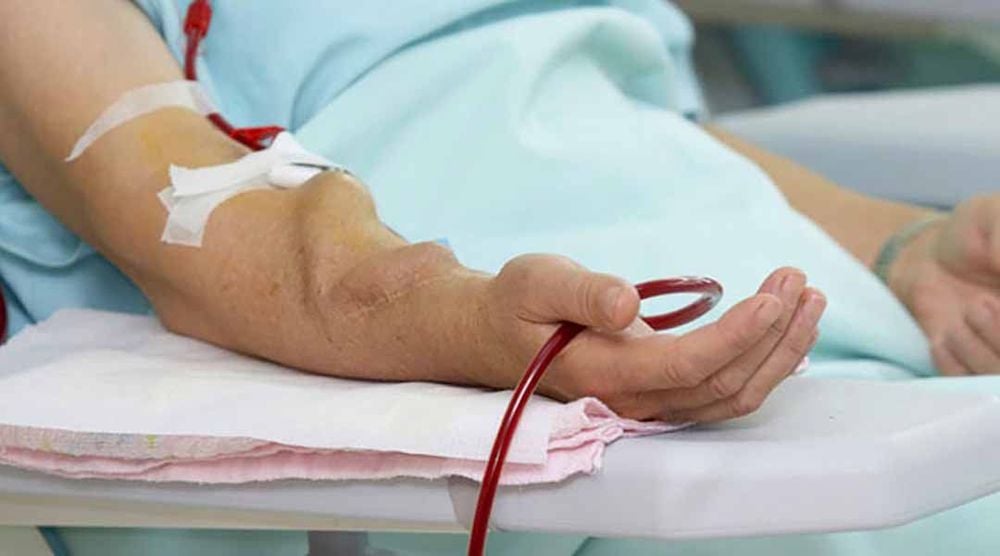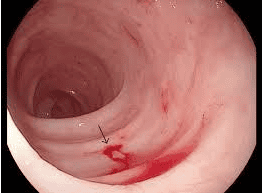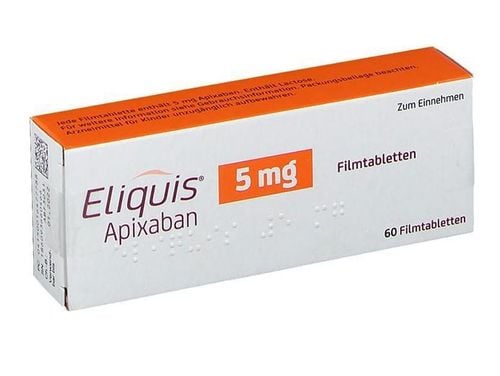This is an automatically translated article.
The article was professionally consulted by Specialist Doctor I Tran Cong Trinh - Radiologist - Radiology Department - Vinmec Central Park International General Hospital. The doctor has many years of experience in the field of diagnostic imaging.Doppler ultrasound of blood vessels is a safe, painless test that helps doctors observe and evaluate the blood flow through the main arteries and veins in the body, thereby diagnosing and detecting diseases. arteriovenous fistula.
1. Overview
Normally, blood flows from the arteries through the capillaries and then into the veins. The nutrients and oxygen in the blood will move from the capillaries to the tissues and organs in the body. An Arteriovenous Fistula is an abnormal connection between a vein and an artery that does not pass through a capillary, resulting in less blood supply to the tissues that the capillaries overlook.Arteriovenous fistulas, which can be congenital or due to other causes, usually occur in the legs but can develop anywhere in the body.
2. Arteriovenous fistula is dangerous?
If not detected and treated, an AVM can cause serious complications such as:Blood clots: Deep vein thrombosis can be life-threatening if it causes a pulmonary embolism. . Depending on where the fistula is, it can even lead to a stroke. Bleeding: Arteriovenous fistulas can lead to bleeding, even into the digestive system. Leg pain: A fistula in the leg can also develop pain in the leg. Heart failure: is the most dangerous complication of large arteriovenous fistulas.

Nếu không được phát hiện và điều trị, rò động tĩnh mạch có thể gây ra các biến chứng nghiêm trọng
3. Arteriovenous fistula symptoms
Signs of an arteriovenous fistula vary widely depending on the location of the fistula. Small fistulas usually don't show any signs or symptoms, while large arteriovenous fistulas can have obvious signs and even be fatal. Symptoms of an arteriovenous fistula are often seen as:Swelling in the arms or legs. Varicose veins, which can be seen through the skin with a purplish luster, resemble varicose veins. Lower blood pressure. Tired. Heart failure. Arteriovenous fistula in the lungs is a serious condition with signs: pale skin, pale skin, patients coughing up blood, clubbing fingers... Also arteriovenous fistula in the gastrointestinal tract can cause bleeding gastrointestinal blood.
4. Indication case
Patients may be assigned Doppler ultrasound of blood vessels if there are suspicions of:Deep vein thrombosis: blood clots in veins (mainly veins in the legs). Arteriosclerosis: hardening and narrowing of the arteries, making it difficult for blood to flow to the legs and feet. Superficial thrombophlebitis: caused by a blood clot forming in a vein just below the surface of the skin. Thromboangiitis: The blood vessels of the hands and feet become inflamed and swollen, forming a tumor on blood vessels in the arms or legs. In addition, Doppler ultrasound of blood vessels also helps to evaluate:
Hemodynamic status in arteries and veins. Assess circulation of tumors, abscess status of organs. Inflammation of the tissue to be investigated (eg appendicitis, cirrhosis)... Determines blood clots in veins or arteries. Blockage in an artery due to an embolism or accumulation of cholesterol.

Rò động tĩnh mạch trong đường tiêu hóa có thể gây xuất huyết đường tiêu hóa
5. Can Doppler ultrasound of blood vessels detect arteriovenous fistula?
To make a definitive diagnosis of an arteriovenous fistula, your doctor will combine medical history and medical history with a physical exam and laboratory tests. Depending on the clinical condition and symptoms of the patient, the doctor will appoint the appropriate tests:Computed tomography (CT) of blood vessels: Allows to check dynamic and venous status through images . Magnetic resonance angiography (MRA): Used to investigate in cases where the fistula is located deep in the body, in difficult-to-diagnose soft tissue areas. Doppler ultrasound of blood vessels to identify arteriovenous fistula: This is the most commonly used and effective test to check a fistula in a blood vessel with the advantage of being non-invasive and painless. The person performing the ultrasound will not be exposed to harmful radiation. However, in some cases there are several factors that can affect the results of the vascular ultrasound and the patient will need to have the test again. These factors include: Smoking about 1 hour before the ultrasound. Cardiac arrhythmias Obesity. Having heart disease After Doppler ultrasound of blood vessels, the obtained image results will be studied and explained by the doctor to the patient. Then inform to perform additional testing (if needed) or advise appropriate treatment plan.
Vinmec International General Hospital with a system of modern facilities, medical equipment and a team of experts and doctors with many years of experience in medical examination and treatment, patients can rest assured to visit. examination and treatment at the Hospital.
Please dial HOTLINE for more information or register for an appointment HERE. Download MyVinmec app to make appointments faster and to manage your bookings easily.













